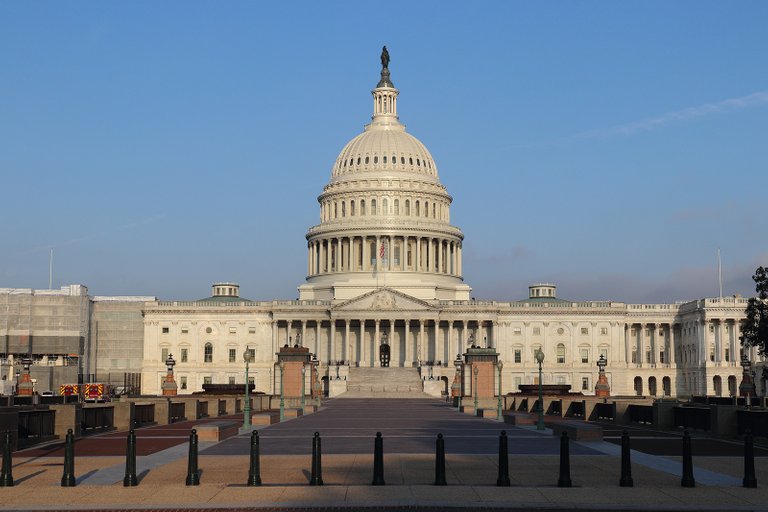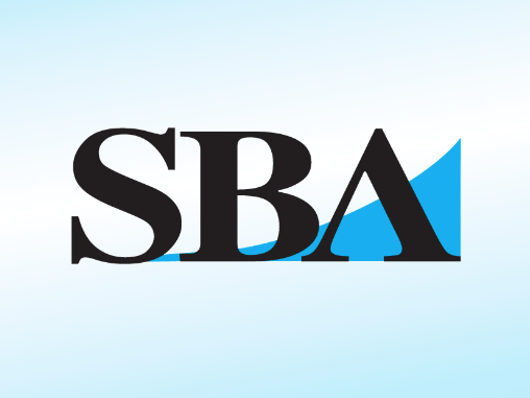
In a historic vote, the SAFE Banking Act has successfully passed through the House and now moves on to the Senate.
On Wednesday, the U.S. House of Representatives cleared the first-ever self-contained cannabis bill, passing H.R.1595 – or the Secure And Fair Enforcement Banking Act of 2019 (“SAFE Banking Act”) – in a 321-103 bipartisan vote.
Proposed by Colorado Rep. Ed Perlmutter (D) this spring, the SAFE Banking Act hopes to eliminate some of the long-standing financial obstacles faced by legal cannabis companies by providing access to more robust range banking services. Additionally, the bill will remove the risk of criminal prosecution for employees, officers, and directors of commercial and reserve banks that service the cannabis industry in jurisdictions where cannabis is legal and will prohibit federal banking regulators from terminating deposit insurance for banks that service cannabis companies and ancillary companies.
The Current Cannabis Banking Landscape
As it now stands, cannabis businesses are regularly unable to secure “normal” banking solutions available to regular companies on the grounds of the industry’s federal legal status. With many banks and credit card companies denying to work with cannabis-related businesses, many in the market are forced to conduct operations in cash. Banks that do accept cash from cannabis companies must comply with a strict set of rules issued by the Financial Crimes Enforcement Network (“FinCEN”) and are required to file cannabis industry-specific suspicious activity reports (“MSARs”). The ensuing complex legal web of regulations often frightens bank compliance officers or financial risk management departments from working with the cannabis industry, as the American Bankers Association highlights on its website:
“Currently, thirty-three states, the District of Columbia, Guam and Puerto Rico have all legalized the use of marijuana to some degree. Yet the possession, distribution or sale of marijuana remains illegal under federal law, which means any contact with money that can be traced back to state marijuana operations could be considered money laundering and expose a bank to significant legal, operational and regulatory risk.”
In addition to the logistical nightmares of issuing employee payroll, paying taxes, or applying for loans, there is also the safety risk to cannabis businesses associated with handling solely cash transactions. A key point of the SAFE Banking Act’s proposed benefits, Financial Services Committee chair Rep. Maxine Waters (D-CA) explained the role of providing safe and secure banking options during the House’s recent deliberation.
“The Financial Services Committee heard testimony in February that these cash-only businesses and their employees have become targets for violent criminals,” Waters stated. “The SAFE Banking Act addresses this serious problem by providing safe harbor to financial institutions that choose to serve state-regulated cannabis businesses.”1
What the SAFE Banking Act Changes
Aside from safer business practices, the SAFE Banking Act would also remove the possibility of criminal prosecution for financial institutions serving legitimate cannabis-related clients. In the bill’s text, the Federal Deposit Insurance Corporation (“FDIC”) and other federal bank regulators are explicitly restricted from penalizing, dissuading, or otherwise discouraging a banking institution from providing financial services to legal cannabis or associated businesses. This would, in theory, give more banks the confidence to support cannabis companies.
With expanded access to proper financial institutions, there will likely be a surge in participation in the cannabis adjacent markets as companies that have desired to work with cannabis businesses have remained on the sidelines due to aversion to the potential financial risks. One would hope that the biggest and most important abstainers thus far, Mastercard and Visa, might enter the market allowing for normalized payment processing – which would likely mitigate the “cash” problem in and of itself. Beyond the owners of the payment processing infrastructure, which again could be the most important businesses to begin to participate, the involvement of the heretofore cannabis adjacent abstainers is beneficial to the economy as a whole because such involvement has the potential to serve as a “money multiplier,” spreading the financial benefits of the green rush throughout the broader.
Perhaps one of the most substantial aspects of the SAFE Banking Act is the potential impact it could have on the credit market for cannabis companies, or more specifically, that it could create one. As it currently stands, even the friendliest of the cannabis banks do not lend money directly to cannabis companies. The banks’ (understandable) fear is that by collateralizing loans in cannabis businesses they could be seen to be participating directly in a federally illegal enterprise. The inability to secure normal business loans and lines of credit has caused the proliferation of hard money lenders that prey on small businesses with usurious interest rates that would be laughed at in any other market. This lack of normalized credit has also resulted in the overuse of real estate-based loans, again with inflated interest rates. As of today, these are basically the only two options for small to mid-sized cannabis companies seeking credit. The SAFE Banking Act would allow for regular commercial loans to cannabis companies (and cannabis adjacent companies) as it specifically prohibits the criminal prosecution of commercial banks and reserve banks for holding a legal interest in a cannabis or cannabis adjacent business as collateral for a loan.
The result of this obviously benefits the cannabis industry but it also would serve as a broad economic stimulus since the current prohibition on lending in the cannabis sector serves as an effective ban on cannabis money from being used in the fractional reserve banking system. Without getting into complex economic theory consider this example: if a cannabis bank has $500 million in deposits and it was suddenly allowed to act like a normal financial institution, it would have to hold a minimum of 10% of that money ($50 million) in reserve, but would “add” around $5 billion to the country’s money supply. Applying this equation to the $17 billion in sales projected for 2019 and admitting the cannabis industry into the regular banking system results in an injection of approximately $170 billion into the economy.
What the SAFE Banking Act Doesn’t Fix
If the SAFE Banking Act passes the Senate and becomes law, the bar to entry for the cannabis entry could be lowered significantly. There are, however, notable limitations to the bill. Arguably the bill’s largest oversight, the legislation does not address the Small Business Administration’s (SBA) policy for cannabis companies. Currently, cannabis businesses and companies that receive more than 50% of their revenue from cannabis businesses are unable to benefit from the SBA federal financial assistance program. The SBA is an essential tool for small businesses in this country; the primary SBA lending and financial assistance program – the 7(a) loan program –reported $20,873,766,300 in 2019 small business loans.2 The fact that SBA assistance is unavailable to participants in the cannabis industry and companies associated with the industry is a significant issue. The inability to secure SBA loans has left cannabis and cannabis-adjacent companies open to potential predatory lending practices and created unnecessary hurdles for these companies to successfully attain financial security, drastically increasing operational costs.3

Essential to small businesses across the country, the SBA excludes legitimate marijuana companies
Outside of the House, many banking, cannabis, and law enforcement organizations have announced their support of the SAFE Banking Act. Groups such as the National Cannabis Industry Association, National Cannabis Roundtable, and Cannabis Trade Federation have all made their recent lobbying efforts known in advancing the bill thus far.4 Additional support from the Credit Union National Association, American Bankers Association, and the National Association of Attorneys General are among other advocates.5
SAFE Banking Act: What’s Next
Support for the SAFE Banking Act has been significant, however, further hurdles still remain before the bill is fully passed. Looking now to the Republican-controlled Senate. Capital Alpha Partners analyst Ian Katz spoke to Market Watch on the likelihood of the legislation’s passage in the Senate:
“There’s a line of thinking that McConnell could go along with a pot banking bill to help Republicans in the 2020 elections,” Katz noted. “The tough re-election prospects of Republican Sen. Cory Gardner [one of the bill’s co-sponsors] of marijuana-friendly Colorado are often cited. But the benefit to Republicans, especially in the West and South, of supporting a bill that’s at least superficially pro-marijuana, is debatable.”6
That said, last week’s inclusion of key provisions to address the hemp and cannabidiol (“CBD”) markets may be enough to sway some of the more conservative lawmakers in Congress. In an attempt to expand the bill’s GOP appeal – more specifically to Senate Majority Leader Mitch McConnell (R-KY) – Rep. Perlmutter made last-minute amendments to the bill by (1) extending a similar measure of federal protection to hemp and CBD businesses seeking bank access and (2) moving to prevent federal regulators from singling out specific industries as higher fraud risk without clear and legitimate reasoning, including firearms dealers.7
While ninety-one Republicans voted in favor of the SAFE Banking Act in the House,8 the bill’s future hinges on its reception in the Senate.
- Abbott, Graham. “U.S. House Approves Cannabis Banking Bill.” Ganjapreneur. Ganjapreneur.com, September 25, 2019. https://www.ganjapreneur.com/us-house-approves-cannabis-banking-bill/
- U.S. Small Business Administration. “SBA Lending Statistics for Major Programs as of (08-16-2019).” Small Business Administration. The U.S. Small Business Administration, August 2019. https://www.sba.gov/node/1647896
- Smith, Jeff. “Congress Urged to Open SBA Programs to Marijuana-Related Companies.” Marijuana Business Daily. Marijuana Business Daily, June 20, 2019. https://mjbizdaily.com/congress-urged-open-small-business-association-programs-cannabis-firms/
- Smith, Jeff. “Historic Day: US House Passes Cannabis Banking Bill with Strong Bipartisan Support.” Marijuana Business Daily. Marijuana Business Daily, September 25, 2019. https://mjbizdaily.com/historic-day-us-house-passes-cannabis-banking-bill-with-strong-bipartisan-support/?utm_medium=email&utm_source=mjbiz_daily&utm_campaign=MJD_20190925_NEWS_Daily
- Abbott, Graham. “U.S. House Approves Cannabis Banking Bill.”
- Reklaitis, Victor. “House Passes Cannabis-Banking Bill, but Getting Senate’s OK Still Looks Tricky.” MarketWatch. MarketWatch, Inc., September 25, 2019. https://www.marketwatch.com/story/house-expected-to-pass-cannabis-banking-bill-but-getting-senates-ok-still-looks-tricky-2019-09-24
- Jaeger, Kyle. “House Approves Marijuana Banking Bill In Historic Vote.” Marijuana Moment. Marijuana Moment LLC, September 25, 2019. https://www.marijuanamoment.net/house-approves-marijuana-banking-bill/
- Smith, Jeff. “Historic Day: US House Passes Cannabis Banking Bill with Strong Bipartisan Support.”
The information in this blog post (the "Blog" or "Post") is provided as news and/or commentary for general informational purposes only. The information herein does not, and shall never, constitute legal advice and therefore cannot be relied upon as a legal opinion. Nothing in this Blog constitutes attorney communication and is not privileged information. Nothing in the Post or on this website creates any kind of attorney-client relationship or privilege of any kind.
Originally published Sept. 27, 2019, at https://therodmanlawgroup.com